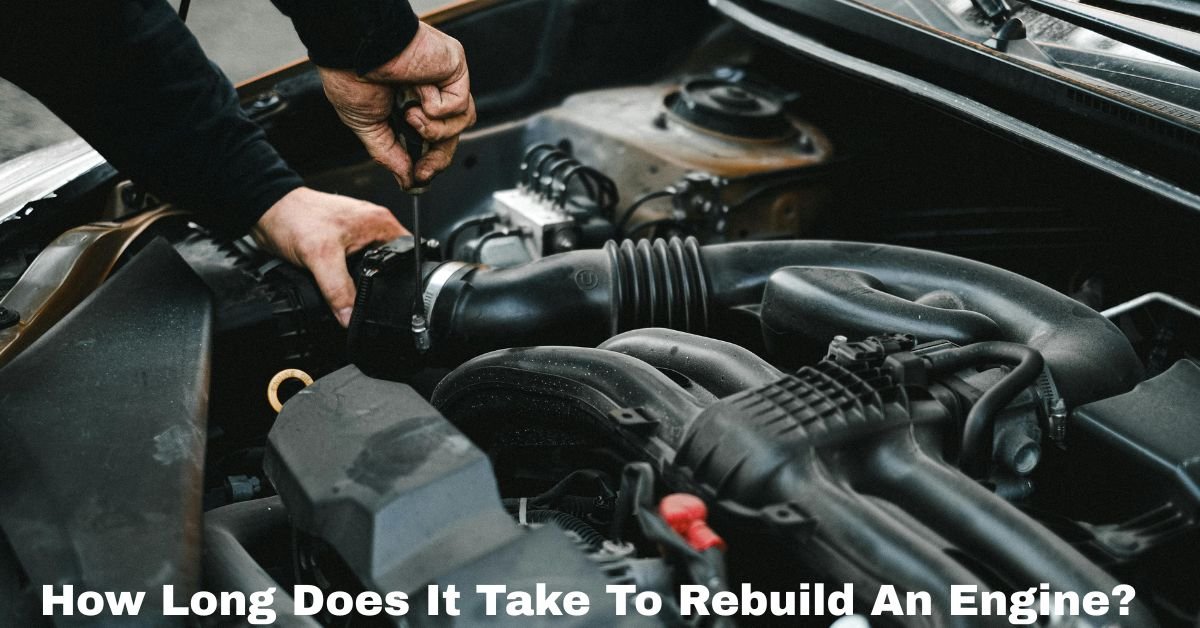When your car’s engine starts showing serious problems — knocking sounds, low oil pressure, or loss of power — a complete engine rebuild might be the best solution. But one of the first questions most car owners ask is: how long does it take to rebuild an engine?
The short answer: it can take anywhere from 3 days to 3 weeks, depending on several factors such as the engine type, the extent of damage, the availability of parts, and the mechanic’s schedule. Let’s break down what actually affects the timeline and what to expect during an engine rebuild.
How Much Time Does Engine Rebuilding Take?
1. What Is an Engine Rebuild?
Before discussing the time, it’s important to understand what an engine rebuild actually involves.
An engine rebuild means disassembling the entire engine, cleaning and inspecting each part, replacing worn or damaged components (like pistons, bearings, gaskets, and seals), and then carefully reassembling it. The goal is to restore the engine to like-new performance without replacing the entire unit.
It’s a complex process that requires precision, experience, and attention to detail — which is why it can’t be rushed.
2. Average Time to Rebuild an Engine
On average, a basic engine rebuild takes about 10 to 20 hours of actual work time. However, that doesn’t always translate to a single day or two in real life. Most shops have other vehicles in line, parts may need to be ordered, and quality inspection takes time.
Here’s a general breakdown:
- Minor rebuild or refresh: 3–5 days
- Moderate rebuild (common for older engines): 1–2 weeks
- Full rebuild or performance build: 2–4 weeks or more
3. Factors That Affect Rebuild Time
Several factors can either speed up or slow down your engine rebuild:
a) Engine Type
A small 4-cylinder engine is quicker to rebuild compared to a V8 or turbocharged engine, which has more complex components and tighter tolerances. Luxury or performance engines may also require special tools or expertise.
b) Extent of Damage
If the damage is limited — for example, worn-out piston rings or a bad head gasket — the rebuild will be faster. But if the crankshaft, cylinder walls, or valves are damaged, more machining and part replacements are needed, extending the rebuild time.
c) Parts Availability
Even experienced mechanics can’t move forward if critical parts aren’t available. Waiting for pistons, bearings, or gaskets to arrive can add days or even weeks to the process, especially for rare or imported engines.
d) Machine Shop Work
Most rebuilds require machining — boring cylinders, resurfacing heads, or grinding crankshafts. This is done in specialized shops, and the turnaround time depends on their workload. It’s one of the biggest reasons why rebuilds often take longer than expected.
e) Mechanic’s Schedule
If you’re taking your vehicle to a busy garage, it may sit in line before the work starts. Choosing a trusted but less busy mechanic can reduce waiting time.

4. DIY vs Professional Rebuild Time
If you’re considering rebuilding the engine yourself, expect the timeline to be much longer. Even with experience, most DIY enthusiasts take several weeks or months to finish the job, since it involves disassembling, cleaning, measuring tolerances, ordering parts, and reassembly.
Professional mechanics, on the other hand, have all the tools, machines, and expertise ready — making the process faster and more precise.
5. Signs It’s Time for an Engine Rebuild
Knowing when to rebuild can save both time and money. Common signs include:
- Excessive oil consumption or smoke from the exhaust
- Low compression in one or more cylinders
- Metal shavings in the oil
- Poor fuel efficiency
- Knocking or tapping sounds from the engine
If you notice these symptoms, a compression test or inspection can confirm whether a rebuild is necessary.
6. Final Thoughts
Rebuilding an engine isn’t a quick job — it’s an investment in your vehicle’s long-term reliability. While the process might take a few days to a few weeks, the result is a smoother, stronger, and more efficient engine that can last for many more miles.
If you’re planning an engine rebuild, always work with a reputable mechanic or shop that provides clear timelines, updates, and warranties. In the end, patience pays off — because rushing an engine rebuild can lead to costly mistakes down the road.
